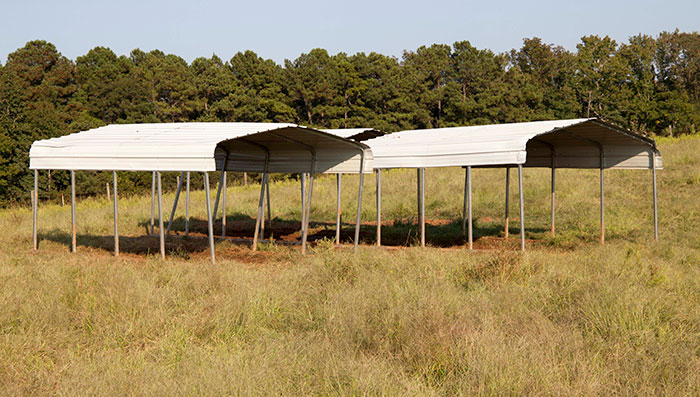
A wide range of opinions is held by beef producers regarding the value of shade for grazing livestock. In the southeastern U.S., where summers come with relentless heat and humidity, there are still producers who discount the value of shade.
Cattle do not dissipate heat as readily as most other animal species. Heat stress in beef cattle causes reduced breeding efficiency, milk production, feed intake, and weight gain.
Researchers at the North Florida Research and Education Center (NFREC) Beef Research Unit conducted a study this past summer to evaluate the effect of providing artificial shade for replacement heifers grazing bahiagrass pasture during the summer.
Sixty black-hided replacement heifers, averaging 920 pounds, were used for the study. Half of the heifers were provided artificial shade while the other half were offered no shade. The animals grazed from July 17 to September 2, 2017. Adding or subtracting animals during the grazing period maintained forage availability.
A total of 12 pens were used in the study: six containing shade and six without. Heifers in the shade treatment had one 36- by 24-foot shade structure per pen.
Over the course of the 47-day trial, the beef heifers that were offered shade gained 0.43 pound per day. Those without shade averaged a negative 0.04 pound per day, struggling to maintain weight during the course of the six-week trial.
The researchers are in the process of further evaluating other components of the trial, including differences in time spent grazing and animal body temperature.

